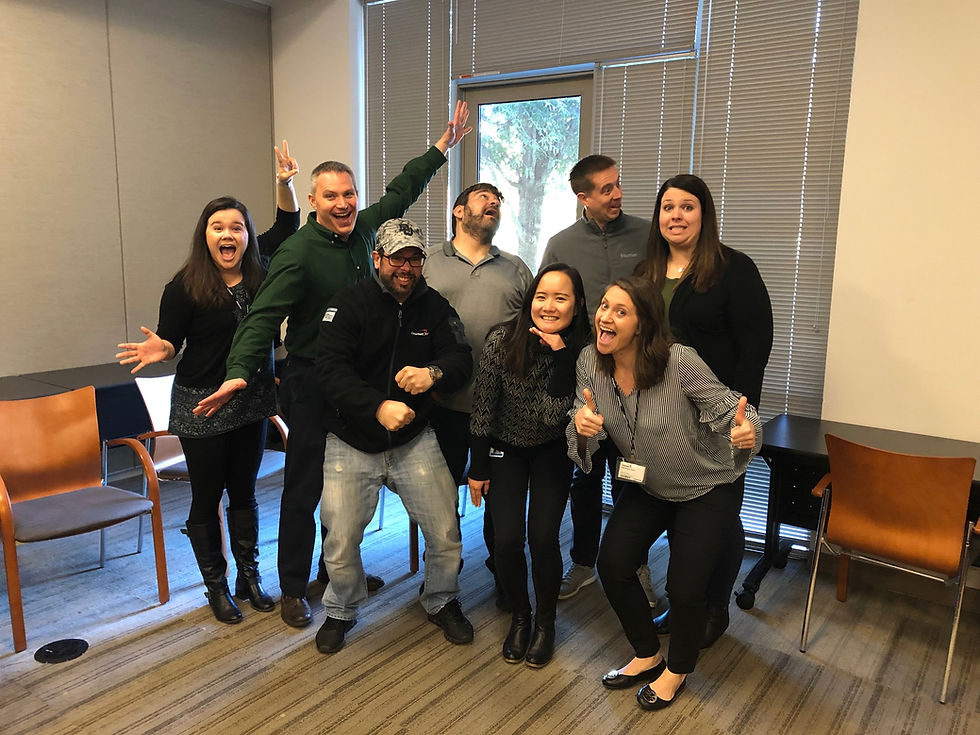Improv Life Lessons- Shaw Phillips
- Alexandra Horn
- Apr 1, 2018
- 2 min read
Updated: Apr 23, 2018
1. Say Less – economy of words. Christie Wallace, a DCH instructor, helped me fine-tune this concept. As a sales professional, I had a tendency to stay too much out of excitement at the top of a meeting. A core pillar of good improv is killer listening skills, and that it’s more important to say less words, but with weight, than more words without meaning. Conversations, sales pitches, and relationships should be collaborative – and when both parties have time to process their thoughts and respond truthfully, meetings and scenes will heighten organically. It’s like there should be an expression about cutting to the action, or the chase, of a scene.
2. Say yes! Saying yes feels good. I’ve always been an optimist, but now optimism is synonymous with Caroline. Good stories, and good scenes, rarely start with “No”. If a scene started with, “Dang, Judy, those hotcakes are actually making me feel hot – what a great birthday breakfast!” and I said, “My name is Bob and that was a burger and it’s a funeral” we wouldn’t have a lot to work with. Negating stalls momentum and negativity breeds pessimism. Instead of finding reasons for why something doesn’t make sense, improv promises that good things happen when you trust the moment, respond authentically and take risks. As Maggie Austin taught us day 1, “if this is true, what else is true?” In life, it can be easy to stall yourself from dreaming and let the analytical mind take over. By eliminating the fear of failure, you render the little voice in your head telling you “that’s stupid” completely powerless. As a result, the scene gains the freedom to be creative, and that creativity will inspire you to take more risks in real life. If hotcakes really make the first subject hot, what else in this world could be true?
3. It’s okay to be bad. No really, it is. I’ll never forget in one practice, a coach told me “This is the last important thing you’ll do all day” – and that was permission to fail for the first time in my life. In improv, you surrender control and trust to your scene partners and troupe mates to make something organic and beautiful together. Taking the pressure off when I’m performing has alleviated the pressure I felt in daily live to meet judgments I put on myself. It’s incredible that pretending to be a Mafia-screenplay writer on stage could impact my real-life. But just give it a try, you won’t regret it*
So in my next few moons, I’d like to share the happiness and confidence that improv has brought me with the larger community.
I also highly recommend attending Improv to Improve’s individual is hosting an “Improvement Workshop for Individuals” on 4/29.
Learn more here!*No Money Back Guarantees
XX,Shaw





Comments